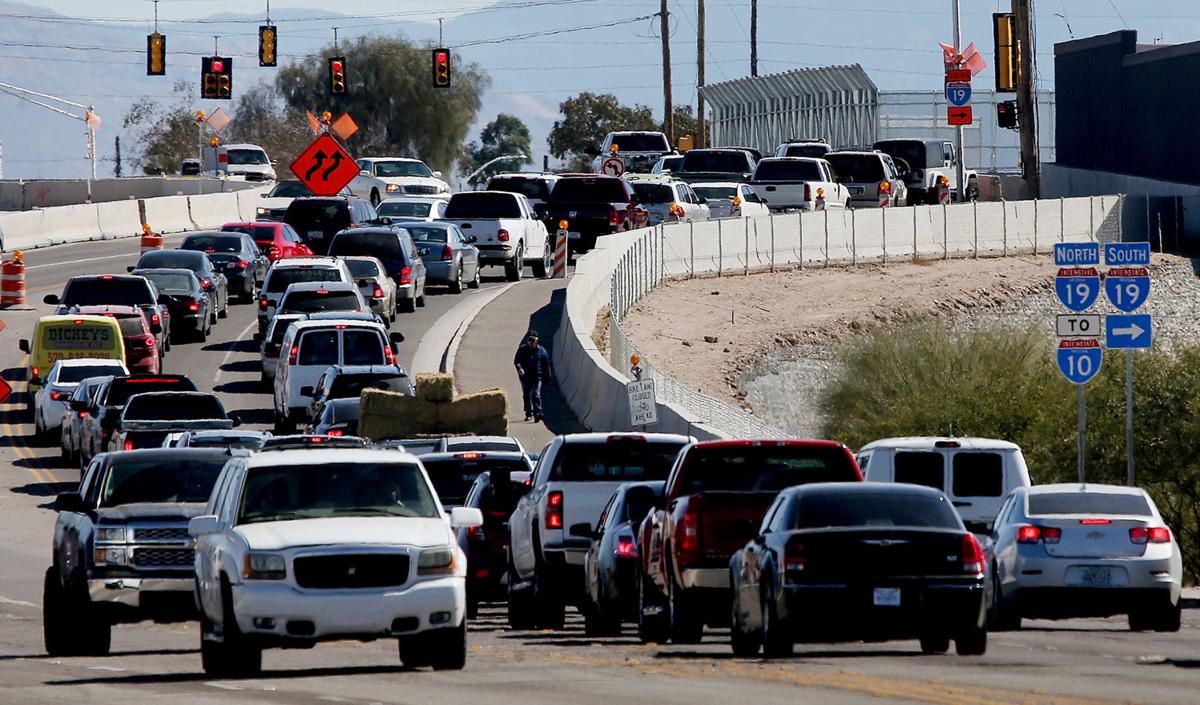With roads extra-crowded with holiday travelers, it’s a good time to remind drivers that Arizona’s “Move Over” law covers all vehicles, not just those of first responders.
That means drivers need to make the effort to scoot into an inside lane whenever any vehicle with its flashers on is pulled over on a freeway, multi-lane highway or city road.
“It’s the difference of everyone going home at night or not,” Angela Barnett, executive director of the Arizona Professional Towing and Recovery Association, said about the importance of adhering to the law. “I don’t know what kind of a price tag you can put on a life.”
More than 2 million Arizonans are expected to travel during the holiday season, a 5 percent increase from 2017, according to the American Automobile Association.
“It’s not just responders, it’s for any individual in the state of Arizona that has their flashing lights on on the side of the road,” Barnett said. “So if you’re broken down, people are required to move over for you, or your children or their children. I think when you put it in terms like that, people should think about that more.”
Arizona’s law went into effect in 2005 after an increase in crashes like the one that killed 58 year-old Danny Haro on June 4, 2016.
Haro, a tow-truck driver for Big Dave’s Towing in Benson, was on the shoulder of Interstate 10 at Milepost 295, loading a disabled vehicle. At about 2:30 a.m., he was struck and killed by a truck, according to Arizona Daily Star archives. State troopers have not found the driver involved.
“We are responders,” said Barnett, who’s spent 22 years in the towing industry. “We lose more towers every year than any other responder out on the roadway.”
According to AAA, one tow-truck driver is killed every six days. More than 100 people are killed every year responding to crashes in the United States.
The move-over law was amended in 2011 to include all motorists, not just first responders. But the National Highway Traffic Safety Administration says 71 percent of Americans don’t know about the law, although forms of it are active in every state.
In November, the Arizona Department of Transportation’s website highlighted guidelines to keep roadways safe for all people, including those involved in a crash.
For minor crashes —like a fender-bender —you should first move out of the travel lanes if the car is operable. “You don’t have to preserve the scene of (a) non-injury crash,” ADOT says.
Once your vehicle is safe, don’t step into traffic to take a photo of the damage. You and the other driver involved should exchange necessary information while waiting safely for authorities to respond, which is called “quick clearance.”
The goal is to prevent secondary collisions.
Nearly 350 crashes occur every day in Arizona, ADOT says, adding that when they occur, drivers should remain alert, watch for approaching traffic and stay at the crash scene.
“I think the impact, it’s getting there, it’s not where it needs to be because we’re still losing people,” Barnett said about the law. “But we’re are getting there, and it is making a difference.”
Down the Road
Input on public transit sought
The Pima Association of Governments is asking for input on potential changes to the Sun Tran, Sun Link and Sun Shuttle services for the next 10 years.
Officials say your input on an online survey will help with plan development for Tucson’s public transit. Participate in the five-minute survey by visiting PAGregion.com/feedback
Tucson road projects
You can still provide input about two Arizona Department of Transportation projects in Tucson.
Crews would potentially designate Alvernon Way as State Route 210, Aviation Parkway, from Golf Links Road to I-10, while adding a new interchange for access to SR 210 from I-10.
Crews could also add two lanes in each direction on I-10 from the I-19 interchange to Alvernon. Up to four lanes would be added on I-10 from Alvernon to Kolb Road.
Call the project hotline at 888-692-2678, email i10SR210Study@hdrinc.com or mail comments to ADOT at 1221 S. Second Ave., Tucson, AZ 85713. Comments must be received by Dec. 30. Find more information at azdot.gov/i10SR210study
No holiday closures
ADOT is trying to keep highways clear for drivers during the holidays.
While some highway work continues through the end of the year, there will be no full closures for construction or maintenance until Jan. 2.
Drivers should be prepared for any existing work-zone restrictions, be patient, obey speed limits — and enjoy the department’s electronic highway signs, which will display holiday-themed safety messages.





